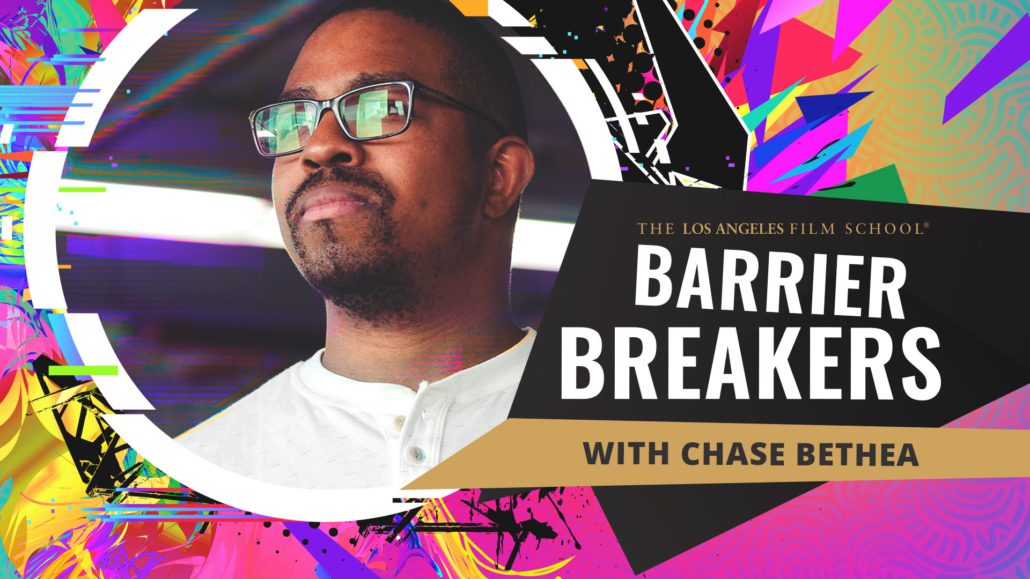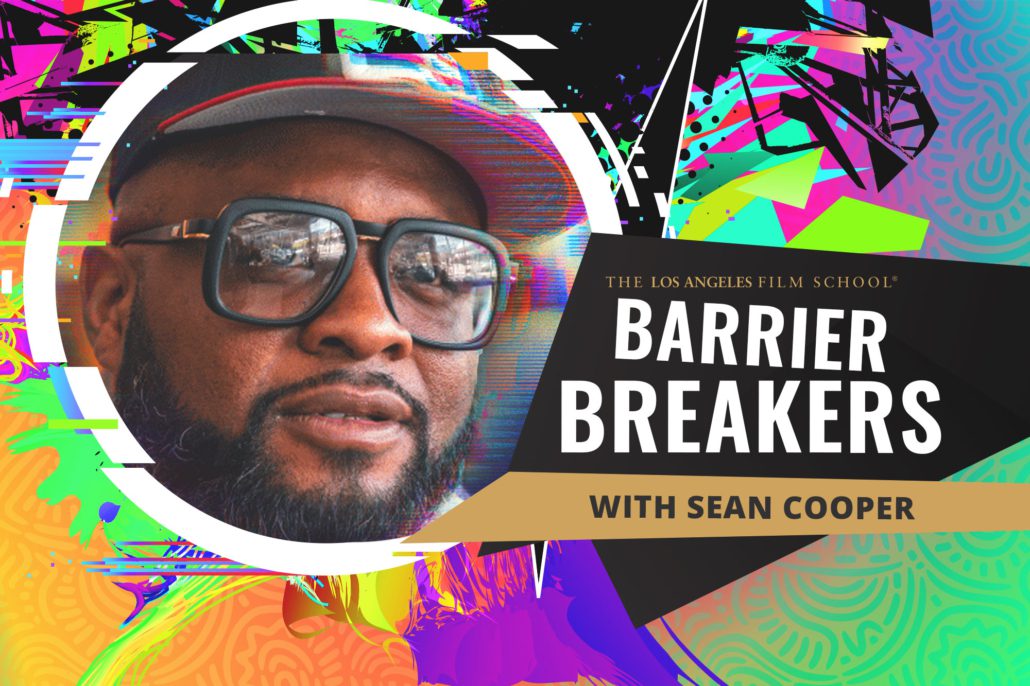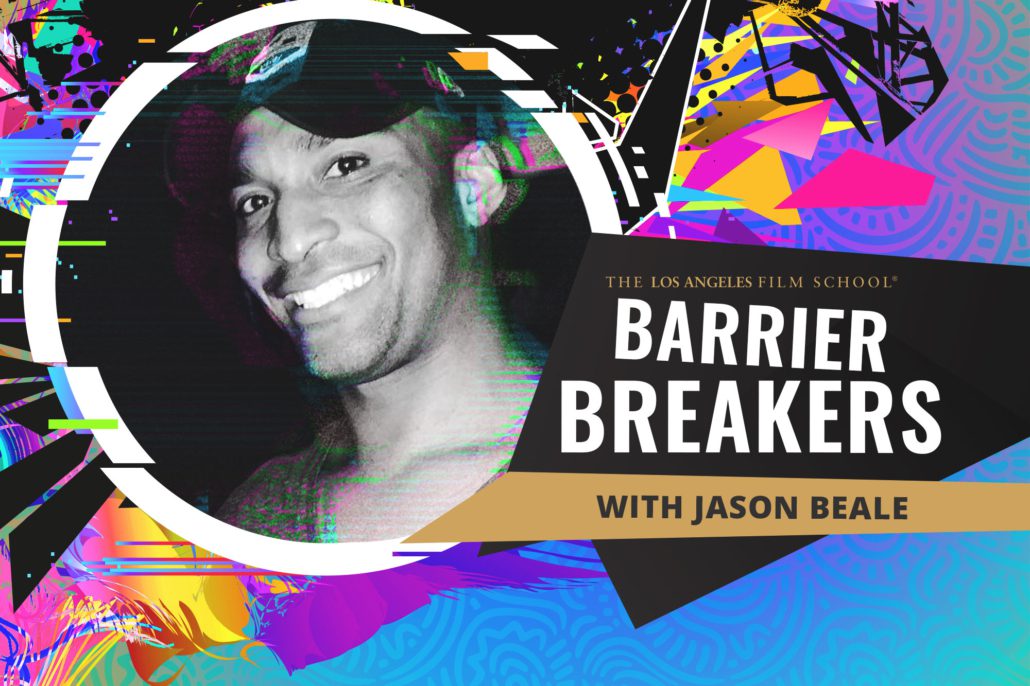Breaking Barriers with Chase, Sean and Jason
Talking shop with alumni who work in the entertainment industry is one of our favorite things to do. It’s refreshing to hear their candid stories about breaking into the business. Sometimes it’s an anecdotal story about engineering a successful track and other times it’s a deeper conversation about overcoming setbacks. There’s always a piece of solid career advice that our students can take away from these virtual discussions. In case you missed any of our Black History Barrier Breaker LIVE events, here are the highlights from those chats.
Chase Bethea Talks Making Music for Video Games

Are you interested in learning how to make music for video games? Alumnus Chase Bethea shared a ton of invaluable insight about sound design for video games. Chase recommended one of the best books for game composers who want to learn sound design and game sound. The Complete Guide to Game Audio by Aaron Marks covers the step-by-step process of game audio and sound effects.
Chase was first interested in composing music in high school and knew that he didn’t want to attend a traditional college. His friends and family told him that his music sounded like it could be in video games. Chase enrolled in The Los Angeles Recording School to concentrate on composing music. The rest is history as they say. He is now composing music for about four games in development right now and has a goal of shipping 12 games in 2021. Head to our L.A. Film School Facebook page to watch the entire interview with game composer Chase Bethea. Here are a few highlights from the interview:
How did you get your foot in the door?
My big break came from working in live sound at Music Plus Television in Echo Park in 2008. I moved up the ranks as a front-of-house engineer and worked up until the last round of layoffs happened during the economic downturn of 2008-2010.
What’s the difference in writing for games compared to other media?
In film, you know you’re on a linear path and with playing games, there is a lot of ambiguity. You have to have a keener sense of the layers of composition in video games. It’s not just about licensing the music and plugging it in. The tones of the music change as a player moves throughout the game. The background sound needs to flow seamlessly with the transition into new environments and levels.
What objects and instruments do you use to create music?
I have a native flute that I will use as well as pencil drum. Sometimes I use my own voice recording in the soundtrack that I’ll put through amps to distort the sound.
Sean Cooper Talks Recording Music with a Distinct Chicago Sound

Curious how this Chicago native turned his love of Gospel music into a career in hip-hop music? We were too! Recording Arts Alumnus Sean Cooper chatted with us about his faith and strong family connection, which eventually led him to mixing tracks for Kayne West and Snoop Dogg. Sean is proof that you can start your dream career at any age. He didn’t attend the Recording School until he was in his 40s after making the move from Chicago to Los Angeles.
Now, Sean works as an A&R with Warryn Campbell, who is a famous producer from Death Row Records. Sean enjoys working with artists who are talented writers and storytellers. Head to our L.A. Film School Facebook Page to watch the entire interview with recording artist Sean Cooper.
What was your first introduction into Hip-Hop music?
The Sugarhill Gang’s Rappers Delight was my first foray into hip-hop music when I was in Chicago.
How has faith and family influenced your career?
I’ve gone through many hardships but have relied on my faith and love of music to keep going. Growing up, my family in Philadelphia was very involved in the music scene through the church. Every Sunday was a musical jamboree with my grandfather playing the organ and singing Gospel music.
What is your creative process?
I’ve always created music that spoke to the environment around me. In Chicago, I’d sit on the el train or walk around the neighborhoods and just listen to the beats of the city. Those city sounds had a lot of inspiration on my music.
Jason Beale Talks Post-Production Editing for Legendary Studios

Our chat with post-production editor, Jason Beale is full of great takeaways for anyone interested in editing movie trailers, working in post-production and movie marketing. Jason explained that once you’re in the film family, it’s easy to keep getting jobs and they slowly become better and better.
Jason got his foot in the door after working on his first movie out of college called The Shaggy Dog. From there, the work kept rolling in with bigger film productions and blockbuster movies including Mission: Impossible III, Avatar, and Fantastic 4: Rise of the Silver Surfer. He recently worked on Denis Villeneuve’s new film, Dune as a post-production executive. Watch the full interview with Jason Beale on our L.A. Film School Facebook Page.
What happens when you edit a movie into a trailer?
It depends! For Dune, we started to think about the trailer while we were shooting. So we tried to get those clips into VFX as fast as possible. Usually, you try to push along certain clips to VFX faster when you know they would work for a trailer.
What is the main thing you would tell a student who is graduating from film school?
I would say whatever way you can get into the film business—get in. Don’t wait for the perfect job. For me, there was no way that I wanted to be in the Art Department when I first started. I wanted to be a producer but I had to start somewhere and work my way up. It’s better to move around from the inside.
